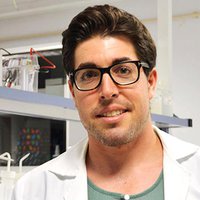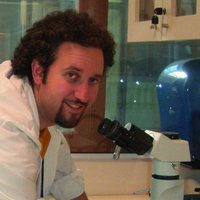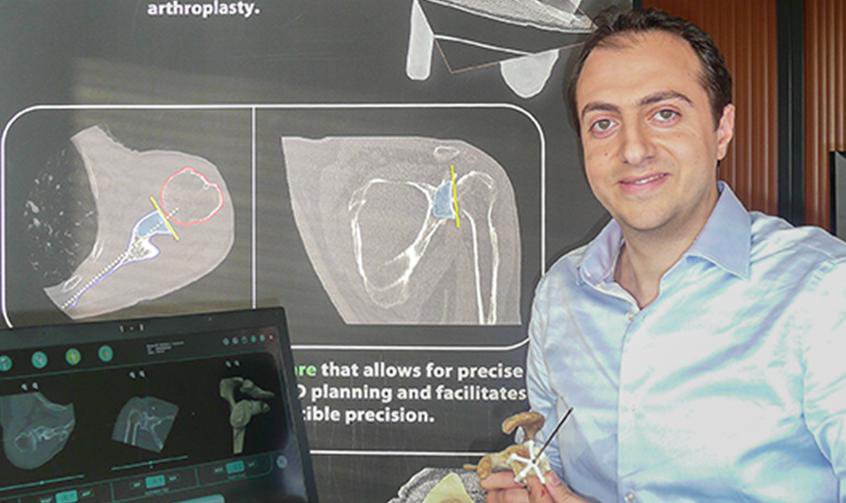"If the sign of good, effective technology is that it can be used without the assistance of engineers, then Jean Chaoui's “augmented surgery”, or “computer-assisted surgery” is precisely so, for the benefit of surgeons and patients alike.
Started as a dream in native Syria where he graduated, pursued in France where he complete his postgraduate studies, and was awarded the National French Prize for the most innovative PhD work in Biomedical Engineering, this young innovator is now directing his own company, called Imascap, which can already boast over 50 successful cases of shoulder arthroplasty (that is, a surgical intervention to restore the functions of a shoulder), all through the comprehensive, one-box automatic system that he designed and implemented to assist doctors in this delicate task: whether caused by degenerative diseases of the bones like osteoarthritis, or by a fracture following a shock such as a motorbike crash, the shoulder is one of the areas of the human body most frequently subject to restorative surgery, due to its exposure and ample variety of movements. Further than that, it is so delicate that it often needs corrective surgery before the problem is fully fixed, typically leading to multiplying costs by a factor of 3. This is why Chaoui decided to focus on this area initially, but plans to extend its utilisation to other key parts of the body in the near future.
Chaoui's system assists the surgeon from start to end, first of all, through its advanced image processing software, which can import images of the patient's body produced by a scanner, and recreate a full 3D, patient-specific model of the area to be operated, including the shape, size and localization of the necessary implant. Through this 3D model, the surgeon can visualize all the steps of his intervention prior to commencing it, including where it is optimal to cut, and the necessary steps to achieve his target. The software can even show the “guides”, that is the polyamide devices designed to fit the patient's anatomy and employed to simplify the correct placement of the implants during surgery. Once 3D printing machines are available directly in the surgical room, we can imagine that the entire process will be further simplified.
As highlighted by Mathias Fink, member of the MIT Technology Review Jury who awarded the prize, it's precisely for his ability and entrepreneurial vision to find a widespread application of his innovative system, already widely adopted in Europe and ready to be deployed in the United States, which earned Chaoui the Young Innovator Award in France."




